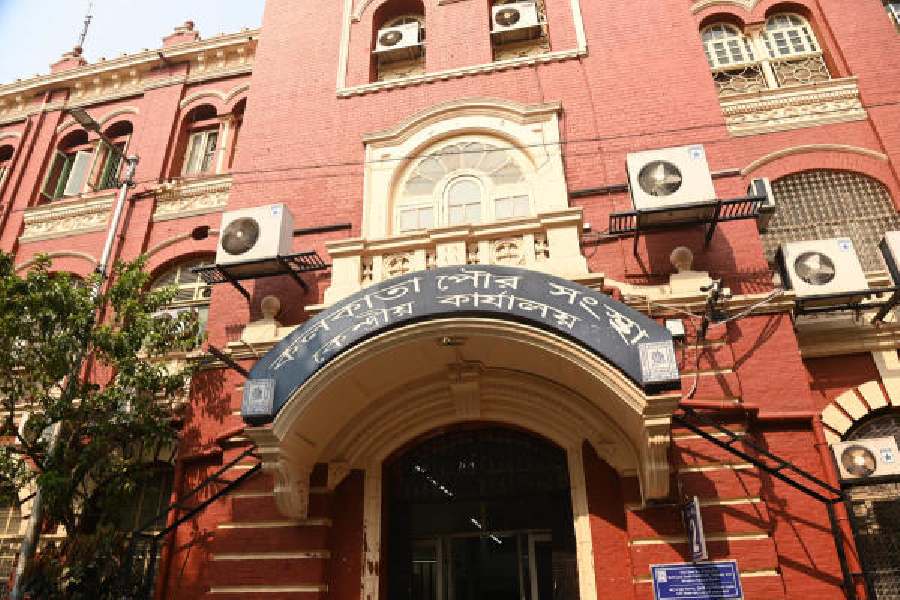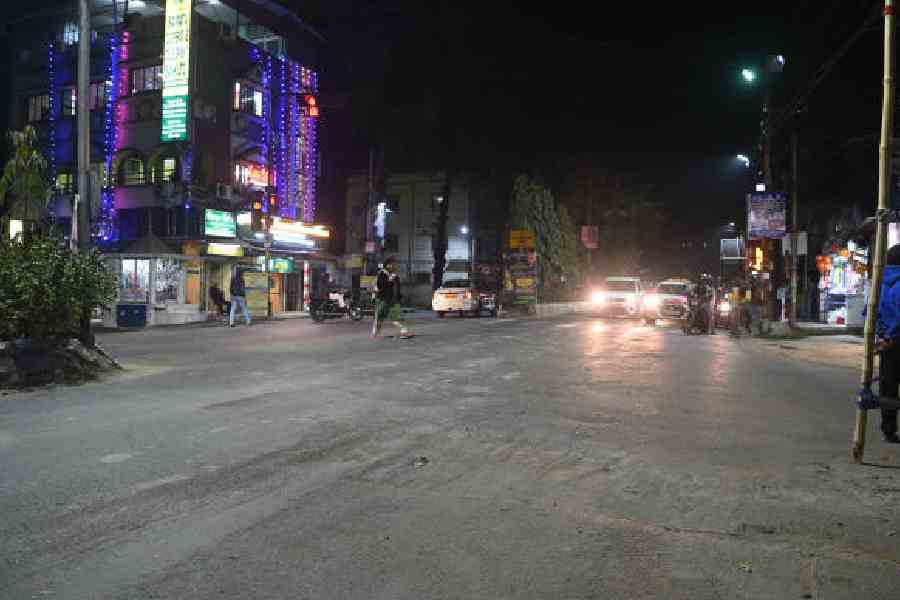-

Pic: Sajeda Momin
When he was a young boy, he grew potted plants picked up from the footpaths of Sealdah in the balcony of his Entally home in Calcutta. Today, he gives gardening tips to Britain's Prince Charles. Peter Chan — an ethnic Chinese born and brought up in Calcutta — is one of the world's leading experts of bonsai, the ancient Japanese art of growing miniature plants.
You can take a Calcuttan out of Calcutta but you can't take Calcutta out of him. As we sit chatting in his beautiful Surrey home, about 100km south of London, on a cold and wet afternoon, his old hometown crops up again and again in our conversation.
Chan, now in his 70s, has vivid memories of the city he left over 50 years ago. 'I have always felt more Indian than Chinese and continue to do so,' he says, showing no trace of bitterness towards the country which branded him and thousands of other ethnic Chinese as traitors during the 1962 India-China war and herded them out of their homes.
He and his four elder sisters escaped the camps set up in Deoli (Rajasthan) that many Indian Chinese were interred in. As their Hong Kong-born mother was a British national, Chan and his sisters were able to seek refuge there in 1963. But he felt he didn't 'belong' there and soon moved to Britain, he says, looking out at the seven and half acres of beautifully landscaped gardens that he now owns.
It was Chan's grandfather who first came to India in 1890 and settled down in Calcutta. 'He and his younger brothers set up the family carpentry business K.T. Hing Bros which mostly manufactured carriages for trains, but also made the furniture for King George V's durbar in 1933,' he says proudly. Chan's grandfather also ran a cinema in Calcutta's Chandni Chowk which showed Chinese films and even brought actors from China to stage plays.
As the family flourished Chan's father, who studied engineering in Milwaukee, US, started working for Clyde fans. But tragedy struck the family when he was killed during the Calcutta riots of 1947, possibly caught in cross-fire on his way to work. 'I was seven. My mother was widowed and penniless and had to bring us all up. It was my eldest sister, Eleanor, who worked as a secretary and paid for us all to go to college.'
Though gardening was his passion, Chan followed in his father's footsteps. After studying at the Calcutta Boys School and then St Xavier's, he studied engineering at IIT, Kharagpur. 'IITs in India were considered institutes of excellence. Yet when I came to the UK, I was told my IIT degree was not recognised,' Chan says.
He finally got a break when an interviewer at the British Electric Board realised his potential and hired him. By the age of 29 Chan was a senior engineer.
Bonsai came to Chan only in his later years. Well-settled with his wife Dawn, an Englishwoman, and their two children, he began to spend more time on his passion for horticulture. 'I was fascinated by bonsai and how these miniature trees could live for centuries and so began to do more and more research on them,' he says, sipping tea, and surrounded by his beloved bonsai.
Chan, who learnt the art mainly through books and by experimenting at home, published his first book Bonsai — the Art of Growing and Keeping Miniature Trees in 1985 and it became a bestseller. Since then he has written eight books including Bonsai Secrets — the bible for bonsai lovers around the world.
In 1986 he bought a beautiful plot in Lingfield, Surrey, and set up home and Herons, Britain's premier bonsai nursery. 'There were herons on the lakes here and in Chinese mythology herons are the harbingers of good luck so I kept the name.'
 |
The nursery is a treasure trove of miniature plants. The outdoor flowering plants include pyracantha shrubs with white and red flowers, rhododendrons, wisteria trees and chillies. Among the fruit trees are crab apple, edible fig, mulberry and pomegranate. The indoor varieties include tropical and semi-tropical plants such as the Chinese elm, jade, pepper tree and orange which actually bear small, perfectly edible fruits.
Helped by Dawn, Chan began to take his bonsai to the UK's most prestigious flower show, The Chelsea Flower Show. Soon he had started winning gold medals for his exhibits. He has a record-breaking 21 gold medals from the Chelsea show, most of them presented to him by Queen Elizabeth II.
'She is extremely gracious and would always come and admire our Japanese garden and bonsai displays,' Chan adds.
Prince Charles, another royal gardening enthusiast, invited Chan to his country retreat at Highgrove to learn about bonsai. 'He is a lovely person, very interested in gardening and the environment. He wanted me to help him design and set up a Japanese garden at his home, which of course I was more than happy to do,' Chan says modestly.
The heir to the British throne may be the most high profile of Chan's students, but he is not the only one. Chan travels the world holding workshops, classes and one-on-one lessons on maintaining bonsai.
'I have been to India many times for workshops,' he says. 'My pupils there tend to be the wives of the rich and famous, who have the fascination and the money to cultivate bonsai as a status symbol.'
It is certainly an expensive hobby as an average bonsai plant at Heron's costs about £200 (approximately Rs 20,700). The cheapest plants are for around £45 (Rs 4,660) while at the top-end some rare and old miniatures are priced at about £40,000 (Rs 41.4 lakh).
Three decades on, Chan has no complaints. 'At IIT I had wanted to change from engineering to architecture but wasn't allowed. But life has come full circle and my desire has been fulfilled by landscaping beautiful Japanese gardens,' Chan says. 'I am a lucky man living in these silken surroundings,' he adds, gazing over his little bit of heaven.
Short and sweet
Tips on bonsai
• You can make bonsai out of any plant
• Bonsai does not have to be expensive
• Calcutta's climate is ideal for ficus, jade, juniper
• Don't forget to water the plants daily — since they exist in pots, they need regular water
• In summer keep them in the shade; the rest of the year in full sun
• Prune regularly










